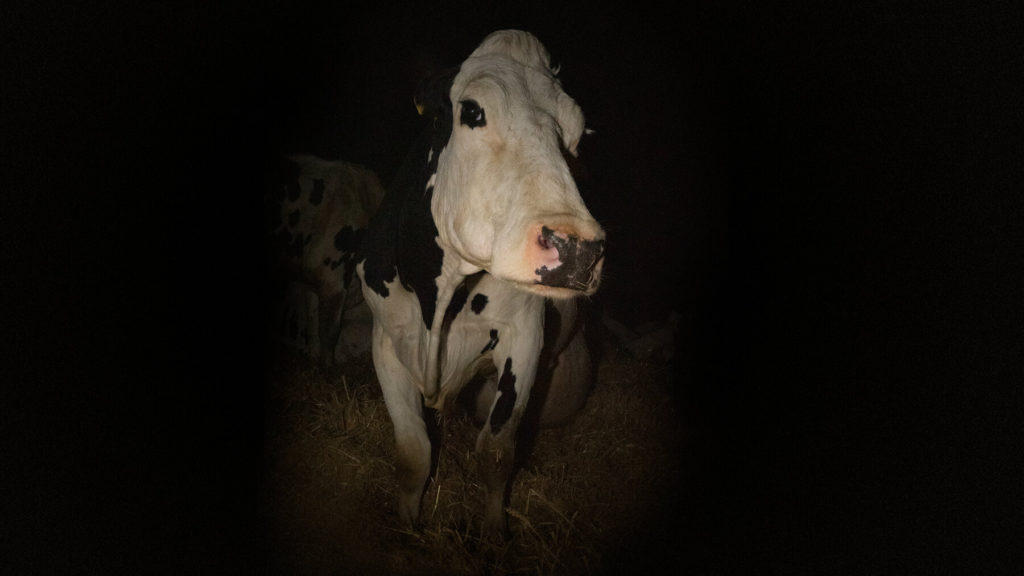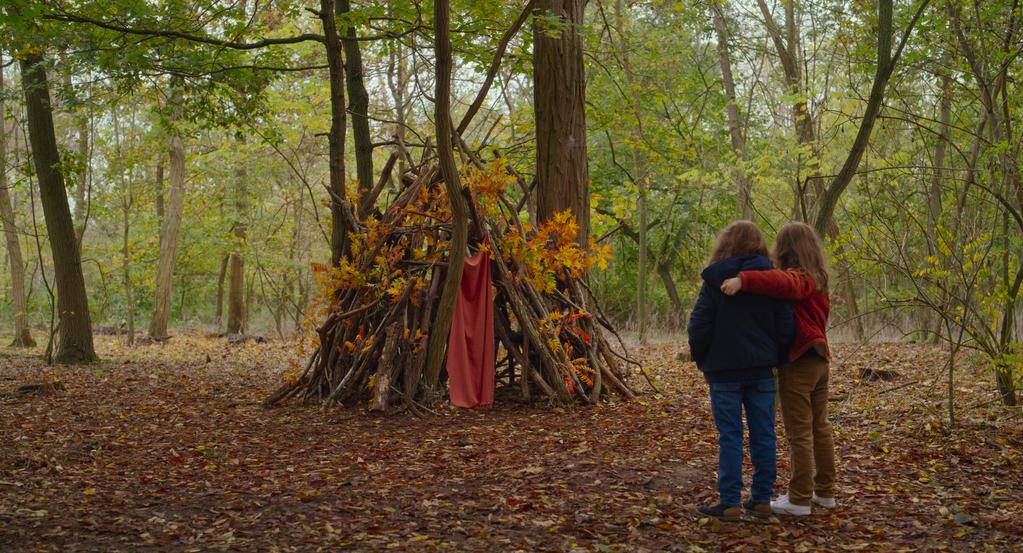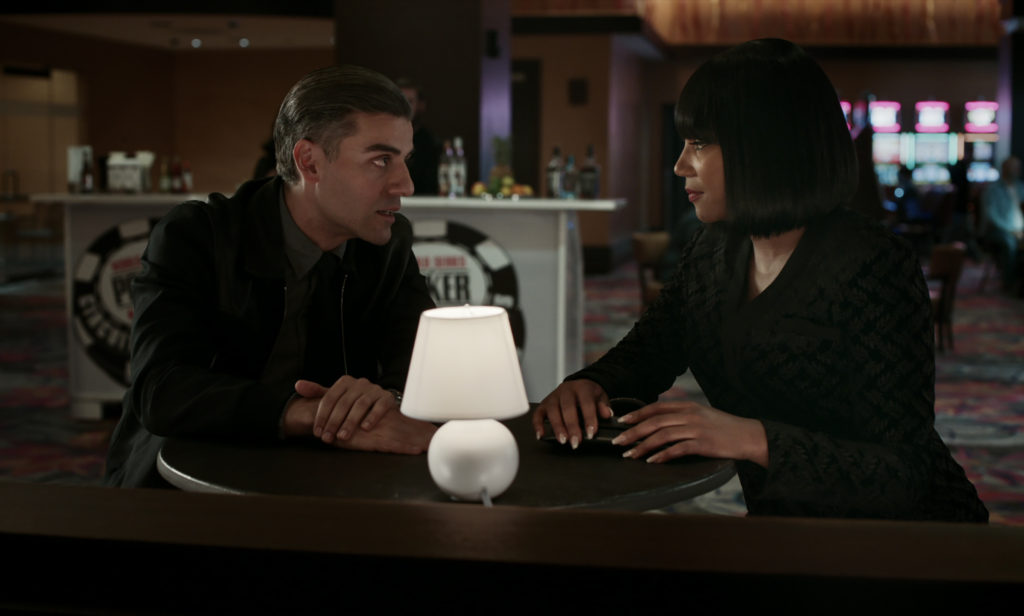Although there is always great temptation to sleep-in while vacationing, for this year’s festival I’ve embraced the power of the morning movie to allow midday breaks and avoid festival overload. To that end, I set out early, made the walk through town, grabbed an excellent cortado at the Coffee Cowboy’s cute airstream cafe, and launched into my day of moviegoing. Starting early gave me time both to catch a star-studded panel discussion in the park with the likes of Mike Mills, Maggie Gyllenhaal, Kenneth Branagh, and Ashgar Farhadi, but it also freed me up to get a delicious avocado toast from a new-to-me gourmet deli, The Little House.
As good as these culinary stops were, nothing could fill the void left by Ghost Town having sadly shut down only days before the festival due to the difficulty of affordable employee housing. It was a theme echoed in many local establishments, all of whom seemed to be straining over the pressures of the pandemic, a busy summer tourist season, and the challenges of finding a place to live in an exceptionally expensive stunningly picturesque small town. In my few years of coming to town for the show, that spot’s been a reliable favorite, so its absence from the main street really stung. But more than that, I really hope that they can find a way to return in a way that’s sustainable for all.

But regarding that cortado, I can’t say that I felt great about the perfectly-foamed whole milk in it while I was sitting down to watch Cow, a clear-eyed documentary in which Andrea Arnold follows Luma, a “nice-faced dairy cow with a strong attitude” that caught her attention in pre-production. The film depicts several years of the animal’s life on a British farm. It’s not all bad — grazing outside and summer nights sleeping under the stars — but no narration is needed to accentuate the complete weirdness of modern animal husbandry.
As the film opens, Luna is giving birth with the help of the caretaker farmers who pull the adorable baby calf from her womb. She immediately begins grooming it and we’re reminded that feeding their young is the real reason that cows udders swell with milk. It isn’t long, though, before Luma rejoins her compatriots around a giant circular station, where pop music plays in the distance and robots extract their milk for human consumption. By then, the calf has been moved to her new home and has become acclimated to bottle feedings from humans. Along with the interventional nature of their feeding, coded tags soon adorn her ears and before horns can sprout they’ve been cauterized with hot iron.
It’s all deeply unnatural, but commonplace. Like many others, I’m so divorced from the means of dairy production that I have no idea whether this farm is a “nice” one or especially bad. Humans exist only at the edges of Arnold’s frame, but what we see of them seems to be generally caring and attentive to the health and well-being of the animals. They arrange a romantic evening under the fireworks between Luma and an unnamed suitor which begins a second cycle of calving. Arnold doesn’t ascribe human emotions to these animals, but it is difficult not to imagine what might be lurking behind their gentle eyes as we watch her go about her life, moo with urgency upon separation from her offspring, and endure veterinary visits and automated milkings. If the film has a political message or a call to action, it seems to be a request to spend at least ninety minutes engaging with the source of our food and taking it into consideration the next time you head to the dairy aisle.

Far more compact in scale and scope than Portrait of a Lady on Fire, Celine Sciamma nevertheless accomplishes a great deal in a short time with Petite Maman. In it, we meet Nelly, a wise-beyond-her-years young girl as she bid au revoir to each of the residents of a nursing home while her mother lingers in her recently-deceased grandmother’s room. The family then moves onto the task of emptying her mother’s rural childhood home. The emotionally heavy task sends her mother running, leaving dad to take care of the practicalities while Nelly entertains herself in the enchanted woods behind the house.
It’s a magical autumnal setting, with plenty of nature to explore. There, she meets another girl who looks exactly like her (the girls are played with delicate precision by twin sisters Joséphine and Gabrielle Sanz). With the help of this new friend, Nelly reckons with loss via treehouse building, crepe making, staging oddly sophisticated plays about torrid affairs, and maybe just a little bit of time travel. Though the transitory friendship may or may not be imaginary, this sweet and compact story about the shared anxieties of mothers and daughters, casts a very real spell whose effects linger.

Paul Schrader is “Telluride family” so the glaring omission of his new film, The Card Counter, from the official SHOW lineup announcement on Wednesday was one the festival’s bigger mysteries. Alas, a few days in, the situation was remedied when a late evening drop of the following day’s TBA slots (a mystery-preserving festival tradition that makes it impossible to construct a perfect clockwork schedule at beginning of the long weekend, yet also improves the odds of seeing the most popular offerings) unceremoniously included it as a “sneak preview” in the small historic Sheridan Opera House theater. After the rave reviews the film garnered in Venice, it was an instant hot ticket that was packed by patrons and guests with priority passes.
Oscar Isaac gives a controlled and intense leading performance as “William Tell”, a rigorous poker player, fresh out of ten years in federal detention. His time in prison engendered in him a fondness for orderly regularity and afforded him plenty of time to learn to count cards. Sticking to the small stakes circuit to avoid attracting unwanted attention, he picks up an unlikely sidekick (a shaggy Tye Sheridan) and a potential backer (Tiffany Haddish in a reserved dramatic turn that crackles with off-kilter sexual chemistry). Like First Reformed‘s Pastor Toller, Bill is a man of few words with a habit for nightly journaling with a tumbler of whiskey close at hand. Schrader sets scene after scene with these voice-overs, from daily contemplations to crisp explanations of the rules, odds, and strategies for various flavors of gambling. The odd array of characters around these tournament poker tables, sounds and sad glowing screens of minor regional casinos, and the beginnings of a seduction set amidst a city park illuminated like a Yayoi Kusama exhibit on mescaline make for an instantly compelling and visually-rich setup.
But all of this intrigue and study of gambler mannerisms is just a candy coated shell to draw audiences in with comfortable story beats of high stakes wagers and fantasies of settling old grudges. Its a big bluff that Schrader sets, so that it’s not until we’re pot-committed that it becomes painfully apparent that the heart of the film is an urgent reminder of the shamefully unpunished corruption underlying our country’s vast criminal torture enterprise. A rebuke of war crimes and a swaggeringly macho poker movie make for a jarringly potent intersection that questions the possibility for redemption versus impulses for violent vengeance. It’s a premium hand that Schrader and his cast played expertly, down to the final card on the river.



